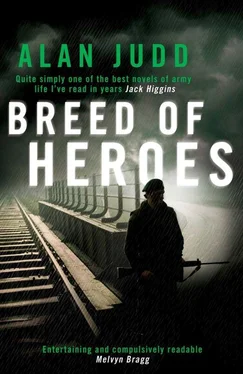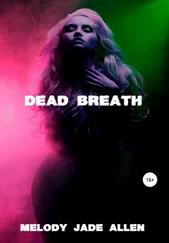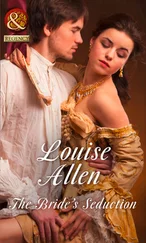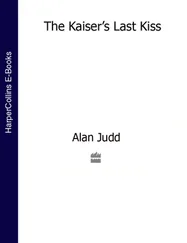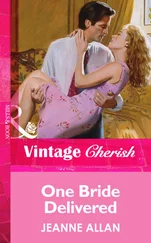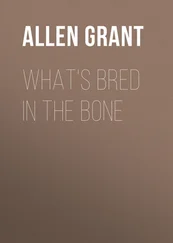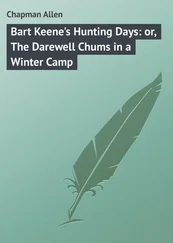Alan Judd - A Breed of Heroes
Здесь есть возможность читать онлайн «Alan Judd - A Breed of Heroes» весь текст электронной книги совершенно бесплатно (целиком полную версию без сокращений). В некоторых случаях можно слушать аудио, скачать через торрент в формате fb2 и присутствует краткое содержание. Год выпуска: 2011, ISBN: 2011, Издательство: Simon & Schuster UK, Жанр: Современная проза, на английском языке. Описание произведения, (предисловие) а так же отзывы посетителей доступны на портале библиотеки ЛибКат.
- Название:A Breed of Heroes
- Автор:
- Издательство:Simon & Schuster UK
- Жанр:
- Год:2011
- ISBN:9781847397720
- Рейтинг книги:3 / 5. Голосов: 1
-
Избранное:Добавить в избранное
- Отзывы:
-
Ваша оценка:
- 60
- 1
- 2
- 3
- 4
- 5
A Breed of Heroes: краткое содержание, описание и аннотация
Предлагаем к чтению аннотацию, описание, краткое содержание или предисловие (зависит от того, что написал сам автор книги «A Breed of Heroes»). Если вы не нашли необходимую информацию о книге — напишите в комментариях, мы постараемся отыскать её.
Alan Judd tells Thoroughgood’s tale with verve, compassion and humour. The result is an exceptionally fine novel which blends bitter human incident with army farce.
A Breed of Heroes — читать онлайн бесплатно полную книгу (весь текст) целиком
Ниже представлен текст книги, разбитый по страницам. Система сохранения места последней прочитанной страницы, позволяет с удобством читать онлайн бесплатно книгу «A Breed of Heroes», без необходимости каждый раз заново искать на чём Вы остановились. Поставьте закладку, и сможете в любой момент перейти на страницу, на которой закончили чтение.
Интервал:
Закладка:
Afterwards, Edward congratulated Charles. The CO was delighted with the way things were going. ‘He’s thinking of letting us do all the night ambushes while the other companies do all the boring daytime stuff. You’ve done us proud, Charles. Thanks a lot, old son.’
That day there were various barrack duties, briefings and working parties. Charles slept for a couple of hours in the afternoon. Dinner in the Mess that night was more boisterous than usual. The CO was in a good mood, but in this as much as in a bad his presence unconsciously intimidated and directed the conversation. Edward was a little drunk and, riding on the crest of the CO’s good opinion, recounted anecdotes about various regimental characters.
‘What about Chunky Jones with that fan in Aden? Sir, d’you remember Chunky Jones in Aden? Built like a gorilla with a solid bone head and no neck. Great man. Anyway, not a word of a lie — I’m not kidding, it’s all gospel — in the middle of dinner one night he stood up on the table and — you know those fans we had out there, those big ones hanging from the ceiling — well, he stood on the table and he stopped it with his head. Clunk, just like that. With his head!’ Several roared with laughter and Edward became even more excited. ‘And then, sir, and then about five minutes later someone bet him he wouldn’t do it again. Well, you know Chunky, he’ll do anything twice. Anyway, he gets up on the table to do it again’ — Edward climbed halfway up on to the table — ‘like this, see, only this time you know what those bastards had done? They’d increased the speed of the fan. You know, they’d switched it on to fast. The bastards! So when Chunky stood up and put his head in the way of it there was this sort of dull clunk, really wooden sound it was, and he keeled off the table on to his back on the floor with this red line right across his forehead and his face covered in blood!’ The small dining room shook with the guffaws and the CO thumped his fist on the table. Edward was ecstatic. ‘There was blood everywhere, I’ve never seen so much! And d’you know what they did then? — whisky — they poured a whole bottle of whisky over him. Can you imagine? A whole bottle!’
Henry Sandy leaned across to Charles during the hubbub. ‘It won’t be long before it becomes a regimental custom, compulsory for all newcomers, whisky to be paid for by the subalterns.’
Dinner continued unabated. Eventually, when one or two people were well into their second course, the CO’s voice was raised in anger and all conversation stopped.
‘Get that out!’ he said, emphasising each word for all it was worth.
Everyone looked for the offending person, but there was no blushing subaltern or grief-stricken company commander to be seen. No one moved, except Anthony Hamilton-Smith who continued to eat whilst gazing with mild curiosity at the CO.
The CO banged his fist on the table. ‘Corporal James!’
The cook hurried in from the kitchen, his mouth hanging open and his flabby cheeks vibrating. ‘Sir.’
The CO pointed to the dish of gravy on the table. ‘Get that noxious liquid out of here.’
Corporal James picked up the dish. ‘Something wrong with it, sir?’
‘Everything’s wrong with it. It’s gravy.’
‘Sir. Did you want something else, sir?’
‘The point, Corporal James, is that it is gravy and I will not tolerate gravy in my Mess. I don’t care what else you give us but I never want to see that revolting brown liquid in here again. Got that?’
‘Sir.’
‘Thank you, Corporal James.’ Corporal James waddled out with the gravy. The CO poured himself some more wine and one or two people tried timidly to get the conversation going again.
Anthony Hamilton-Smith helped himself to some potatoes. ‘D’you not like gravy, Colonel?’ he asked.
‘I detest it, Anthony. Ghastly stuff. Can’t stand the sight of it.’
‘Oh dear, I didn’t know that,’ Anthony popped a large potato into his mouth.
After dinner the Mess split into its customary two camps. One consisted of the CO, Anthony Hamilton-Smith, the company commanders and those captains who felt it was time they were company commanders. The other comprised everyone else and included the adjutant, an unusually popular man with more than his share of that weary resignation that is habitual with some officers. The padre, who was no respecter of persons, moved freely and apparently unselfconsciously from one to the other. Philip Lamb hovered uneasily in between.
Night ambushes on lonely customs posts and isolated crossroads were a major feature of the battalion’s brief stay in Killagh. There were no results, although a sheep was shot, but the CO and the Intelligence officer, Nigel Beale, remained enthusiastic to the end. Nigel was a squat, broad-shouldered, newly-promoted captain who took his intelligence work very seriously. He was of an earnest disposition, a keen soldier who talked about the Need for Greater Professionalism. He sometimes engaged Charles in inconclusive conversations about the growth of subversive tendencies in the universities, the BBC and the press, and his manner suggested that he held Charles partly responsible. His definition of ‘subversive’ embraced the civilian population, the Royal Air Force and even certain regiments and corps of the Army, including Philip Lamb’s. A regular feature of his daily briefings — from which he tried without success to exclude Philip Lamb — was his insistence that those ambushing roads near the border should look out for flat-bedded lorries without lights. This soon became a joke throughout the battalion and one night no less than thirty-six such sightings were reported. Nigel was hurt and the CO furious. Walking-out was suspended for three days and no one ever again reported seeing a flat-bedded lorry. Nigel also had to pass on the daily intelligence summaries from Headquarters. This was another duty he took more seriously than his audience, except for the CO. Most of the topics he mentioned had been reported on and speculated about by the television news the day before. He was frequently mortified by this, regarding it almost as a breach of the need-to-know principle. This was the doctrine that secret information should be known only by those that, for the purposes of their jobs, needed to know it. It was applied by Nigel and the CO with great determination but little consistency, with the result that most people knew most things but weren’t sure what was secret and what wasn’t.
After a spate of particularly serious mid-week riots in Belfast Nigel told them that an intelligence source graded A1 had prophesied further trouble at the weekend.
‘D’you know who said that?’ asked Henry Sandy after the briefing.
‘No, I don’t,’ said Nigel, ‘and I wouldn’t tell you if I did.’
‘Well, I know and I can tell you. It was Jimmy Murphy, who commands the Third Battalion of the IRA in Belfast and is now resident in Dublin. He said it on Twenty-Four Hours last night.’
‘You shouldn’t have said that,’ Philip Lamb said afterwards. ‘It was cruel. It hurt him.’
‘Hurt him? It hurts me to think that we’ll have to rely on him for knowing what’s going on round the next street corner when we get to Belfast.’
Nigel Beale soon became a joke throughout the battalion, the more so because his intense earnestness seemed unaffected by reversals. The result was that his wrongs were recalled with relish while his rights, of which there were at least an equal number, went unrecorded.
One afternoon Charles went out for tea in the town with Henry Sandy, Philip Lamb and Chatsworth. The four of them, all young and variously disaffected, had instinctively formed a group apart from all the others. Though three were graduates, what brought them all together was not a shared education but a communal sense of discontent, albeit for differing reasons. Henry Sandy felt himself more suited to being a perpetual medical student than an Army officer, and did not like the CO. Philip Lamb had the sense of military inferiority common to many members of his corps and wanted very much to be needed and accepted, but felt neither. Charles, on the other hand, feared to be needed and accepted — dimly divining that that was a two-way process that would involve him in needing and accepting the Army — but was at the same time uncomfortable as an outsider. Basically, he wished people well but wished not to be too involved. Chatsworth, though, was perhaps more different than anyone. He had been posted to C company in place of John Wheel who had suddenly been moved to one of the other battalions without any reason being given. Chatsworth was tall, fair and gangling. He walked with his shoulders hunched, his hands clasped behind his back and his head nodding from side to side. He was nearly always grinning and was thought to be mad. On his first day he had mistaken Edward Lumley for the paymaster and they had had a long and confused discussion about allowances before Edward realised. On his second night he had ambushed and attempted to arrest an RUC patrol. He seemed unabashed by whatever happened.
Читать дальшеИнтервал:
Закладка:
Похожие книги на «A Breed of Heroes»
Представляем Вашему вниманию похожие книги на «A Breed of Heroes» списком для выбора. Мы отобрали схожую по названию и смыслу литературу в надежде предоставить читателям больше вариантов отыскать новые, интересные, ещё непрочитанные произведения.
Обсуждение, отзывы о книге «A Breed of Heroes» и просто собственные мнения читателей. Оставьте ваши комментарии, напишите, что Вы думаете о произведении, его смысле или главных героях. Укажите что конкретно понравилось, а что нет, и почему Вы так считаете.
